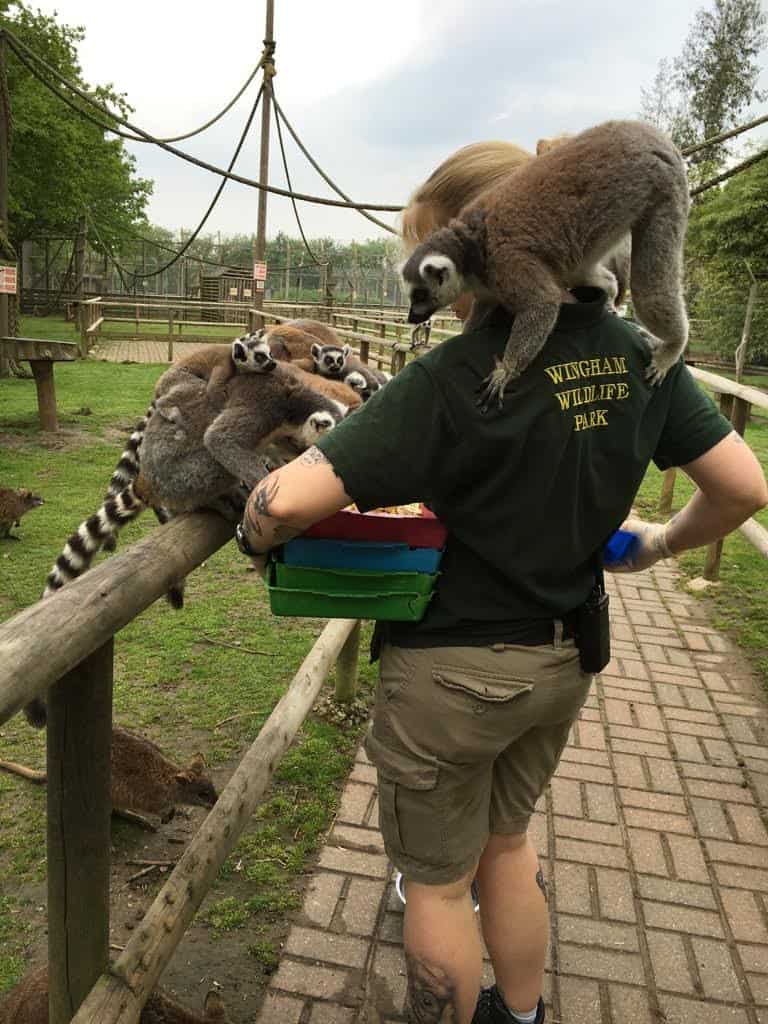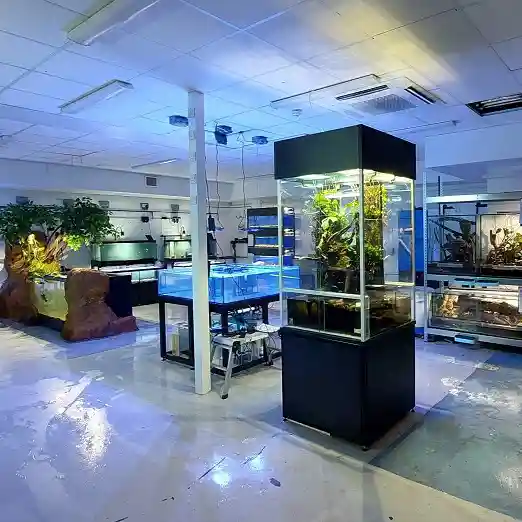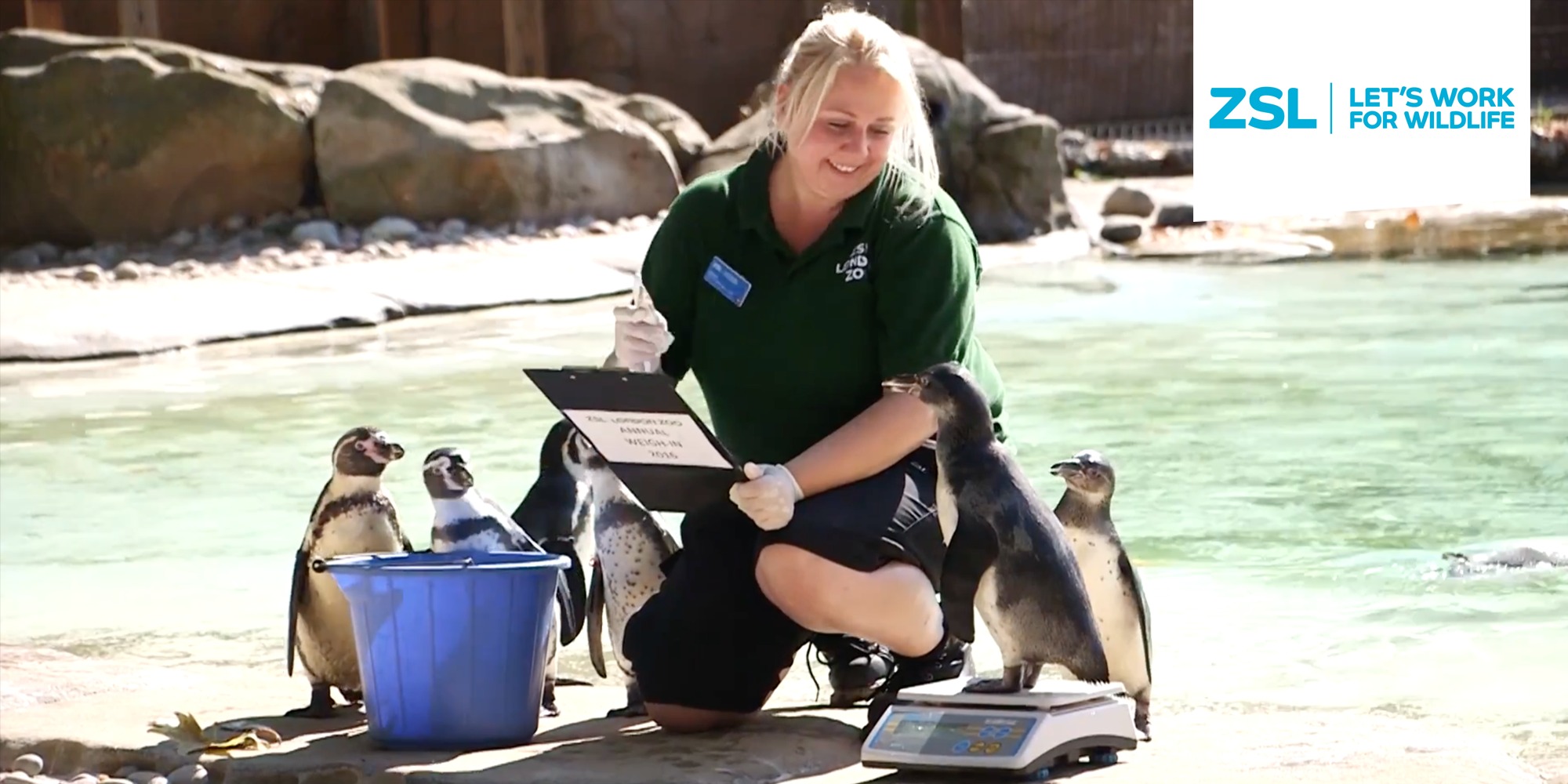This company has no active jobs
Company Information
- Total Jobs 0 Jobs
- Category Administration & HR
- Company Location Guizhou
- Company Size 501-1,000 employees
Something About Company
How To Become A Zoo Keeper?


“The success of a nation and its moral progress can be evaluated by the way its animals are dealt with.” – Mahatma Gandhi


Do you love animals and dream of operating in a zoo? Zoo keepers are type in safeguarding wildlife and taking care of animals. At places like the Zoological Society of London (ZSL), over 20,000 animals get the care they require from experts.
To become a zoo keeper, you require effort, education, and a love for animals. This task is amazing, letting you work with many types and aid with important conservation work. If you’re into wildlife or animal welfare, zookeeping might be best for you.
Starting your zoo keeper profession means learning what’s needed. This guide will cover education, experience, and more. It’s all you require to know to begin a fulfilling zookeeping career.
Understanding the Role of a Zookeeper
Exploring what a zookeeper does exposes a role full of challenges and benefits. They focus on animal welfare and conservation. Zookeepers strive to keep animals healthy and happy in their care.
Daily Responsibilities and Tasks
A zookeeper‘s day is filled with crucial tasks:
- Preparing meals that meet each animal’s nutritional needs
- Cleaning enclosures to keep them clean and safe
- Watching over animal health and behaviour
- Providing medicines and treatments as required
- Creating activities to keep animals psychologically sharp
Workplace and Conditions
Zookeepers work outside in all type of weather. They handle both indoor and outside spaces. The task requires being fit and able to handle the demands of taking care of animals.
“Being a zookeeper is more than a job – it’s an enthusiastic dedication to animal care and preservation.”
Types of Animals and Specialisations
Zookeepers can specialise in many animal groups:
- Primates
- Big cats
- Marine mammals
- Reptiles
- Birds
Your function may include dealing with 2-5 different animal species. This needs a lot of understanding and the ability to adapt.
Vital Skills and Personal Qualities for Zoo Keeping
To be a top zookeeper, you need more than simply a love for animals. Your task will be tough and need you to deal with animals and people well. You’ll also require to comprehend animal behaviour.


What zoos search for in individuals consists of:
- Exceptional patience and emotional resilience
- Strong physical fitness and endurance
- Keen observation skills
- Ability to remain calm under pressure
- High level of empathy towards animals
Getting hands-on experience is essential to mastering this role. You’ll need to reveal:
- Advanced understanding of animal care methods
- Efficiency in animal handling and safety procedures
- Reliable interaction with both animals and human visitors
“A fantastic zookeeper connects science, empathy, and preservation in every interaction with animals.”
You must understand about animal nutrition, behaviour, and standard veterinarian care. Most zookeepers learn through training, offering, and ongoing learning.
Zookeeper work is not simply a job. It’s a big dedication to teaching about wildlife and assisting conservation. Your enthusiasm and hard work will make you stand out in this satisfying career.
How to Become a Zoo Keeper
Starting a career as a zookeeper requires cautious planning and education. You need to initially understand the academic requirements and training paths. These will turn your love for animals into a job.

Educational Requirements
To be a great zookeeper, you require a strong academic base. The majority of jobs try to find specific certifications:
- At least 5 GCSEs at grade 4 or above, consisting of English, mathematics, and science
- A levels or higher education qualifications
- A college degree in biology or animal science
- Level 3 Diploma in Animal Management
Needed Certifications
Getting special accreditations can really assist you in your zookeeper profession. Crucial ones consist of:
- Diploma in Management of Zoo and Aquarium Animals (DMZAA)
- Zookeeping Level 3 Diploma (RQF)
- Animal dealing with certificates
- First aid qualifications
Training Programs and Apprenticeships
Getting hands-on experience is type in zookeeper training. Numerous locations provide great possibilities:
- Unpaid apprenticeships at wildlife parks
- Internship programs at well-known zoos
- Practical training at locations like Colchester Zoo and Dartmoor Zoo
- Offering to acquire real-world skills
Pro suggestion: Create a detailed portfolio to reveal your animal care skills. It will assist you in task applications.
Building Relevant Experience in Animal Care
Getting hands-on experience is key for those wishing to be zookeepers. The task is very competitive. So, it’s important to start developing a strong base in animal care.


Your journey begins with finding methods to work directly with animals. This is a strategic action.
“Experience is the very best instructor in animal care” – Wildlife Conservation Experts
Here are effective methods to get experience working with animals:
- Volunteer at regional animal shelters to establish fundamental animal managing abilities
- Look for internships at wildlife rehabilitation centres
- Check out part-time positions at veterinary centers
- Contact your local zoo for possible volunteer chances
Volunteering is an excellent way to discover animal behaviour and care. Many zoos and animal shelters are trying to find individuals who wish to learn. These places offer fantastic possibilities to get hands-on experience and reveal your devotion to animal welfare.
Here are some suggestions to maximize your experience:
- Keep a record of your skills and interactions
- Get in touch with specialists in animal care
- Ask for references and recommendation letters
- Stay relentless and show your true passion
Remember, practical experience makes you stick out in the zookeeping world. Every time you deal with animals, you discover more. This increases your opportunities of getting a job in animal care.
Career Pathways and Professional Development
Beginning a career as a zookeeper is interesting. It offers numerous possibilities to grow and specialise. Your journey begins with comprehending the different paths in this field.
Entry-Level Positions
Entry-level jobs in zookeeping are a fantastic start. They give you hands-on experience. Zoos try to find candidates with:
- Level 2 Diploma in Animal Care (minimum credentials)
- GCSEs in English and a clinical topic
- Volunteer experience at animal shelters or farms
Career Progression Opportunities
As you get experience, your profession can grow. You can move up to:
- Junior Keeper
- Senior Keeper
- Team Leader
- Specialist Roles
“Continuous learning and practical experience are essential to advancing in your zookeeping career.”
Specialised Roles
You can also pick special locations like:
- Conservation reproducing programmes
- Animal training
- Wildlife research study
- Educational outreach
About 25% of zookeepers get advanced degrees in zoology or animal conservation. Getting Level 4 credentials can increase your opportunities for senior functions and research study.
Working Hours and Physical Demands
Ending up being a zookeeper suggests you’ll work more than just regular hours. You’ll face difficult physical difficulties and need to be versatile, consisting of weekends and holidays. Zoos are open every day, so you’ll frequently work when others relax.
“Zoo keeping is not a common 9-to-5 job– it’s a way of life of dedicated animal care and commitment.”
This job is physically demanding. You’ll work outside in any weather condition, lifting heavy items over 50 pounds. Your jobs may include:
- Early morning feeding schedules
- Cleaning up animal enclosures
- Preparing specialised diet plans
- Carrying out health checks
- Maintaining complex habitats
Shifts can start as early as 5 AM and go late into the night. You’ll be on your feet most of the time, moving in between animal zones. Weekends and holidays are part of the job, needing lots of endurance and commitment.
Despite the difficulties, this job has fantastic benefits. You’ll grow strong, both physically and emotionally. You’ll also make remarkable connections with extraordinary animals.
Health and Safety Considerations
Being a zookeeper includes its own set of obstacles. It’s crucial to know how to keep both animals and personnel safe. This means following stringent health and wellness guidelines.
Zookeepers deal with a special environment where security is essential. Studies show that health and wellness are now as crucial as the zoo’s primary work.
Danger Management Strategies
There are several methods to handle dangers in zoos:
- Daily checks of animal enclosures for risks
- Counting animals at the start and end of shifts
- Viewing how visitors act near animals
- Being ready for emergencies
Animal Handling Safety Protocols
Understanding which animals are most dangerous is . Big animals like rhinos can be very dangerous. There have been cases where zookeepers got seriously injured.
Safety isn’t just about wearing gear – it’s about understanding animal behaviour and staying alert.
Personal Protective Equipment
Zookeepers require to wear the best gear, including:
- Special gloves for dealing with animals
- Strong shoes for grip and zookeeper security
- Clothes that secures against germs
Getting immunized against illness like hepatitis B and rabies is also essential. It helps keep zookeepers healthy in their tough job.
Income Expectations and Job Market
Thinking of a profession in zoo keeping? It’s important to know about wages and the job market. The field is growing, with more opportunities in the UK.
Let’s take a look at what zoo keepers can make at various stages:
- Entry-level zookeepers begin at about ₤ 14,000 a year
- Certified ones make between ₤ 16,000 and ₤ 22,000
- Senior zookeepers can earn approximately ₤ 30,000 or more
The job outlook for zoo keepers is great. The sector is anticipated to grow by 5% in the UK by 2029. This suggests around 3,910 new jobs will be offered.
“The Association of Zoos and Aquariums supports expert growth for zoo keepers,” a report says.
Salaries vary based on a number of things:
- Experience level
- Specialisation
- Where you work
- The zoo’s size and type
While the pay might not be high, the happiness of dealing with animals is priceless. The average income is around ₤ 17,000. However, total earnings can be between ₤ 13,000 and ₤ 27,000 a year.
Conclusion
Beginning a career in animal care is an amazing journey. It requires dedication, enthusiasm, and a love for learning. With over 350 zoos and wildlife places in the UK, there are lots of task opportunities. You’ll get to deal with amazing animals and help safeguard wildlife.
To be a zoo keeper, you require more than just love for animals. You must have a good understanding of biology, be able to interact well, and always want to find out more. You’ll gain hands-on experience, find out about animal welfare, and zookeeper develop a deep regard for nature. About 3,000 individuals in the UK have actually found satisfying careers in this field.
Your success in zoo keeping comes from mixing science with a love for animals. Whether you’re interested in mammals, birds, or marine life, this job lets you help with conservation. Every day will bring brand-new obstacles and finding out opportunities that will improve your skills and knowledge.
If you enjoy animals and want to assist secure wildlife, zoo keeping might be for you. Take on the obstacle, stay curious, and turn your enthusiasm for animals into a satisfying profession.








